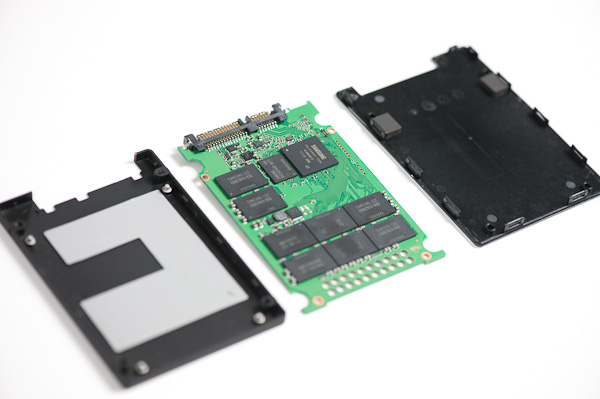The Samsung SSD 830 Review
by Anand Lal Shimpi on September 24, 2011 1:02 AM EST- Posted in
- SSDs
- Storage
- Samsung
- pm830
- Samsung SSD 830
Final Words
The Samsung SSD 830 isn't the fastest drive we've tested, but it generally produces results in the upper echelon of high-end SSDs. If Samsung is able to at least match the current pricing of the SSD 470 and continue its excellent track record in drive reliability, I can see the 830 being a fine recommendation for pretty much any desktop user. The power consumption numbers are a bit troubling but as I alluded to earlier, we are testing a ridiculously high capacity unit - it remains to be seen how smaller capacity drives fare in the power charts.
It's amazing to see Samsung come so far in the enthusiast space. From a drive that I simply wouldn't recommend to building a downright competitive solution backed by a near flawless track record. What I'm even more excited about with this drive is the fact that it will likely find its way into a number of high end OEM systems over the next year. Although I'm glad that more manufacturers are offering SSDs with their systems, I'm often disappointed by their controller selection. If the PM830 is included in the option pool for the next round of design wins however, I'll be much more comfortable recommending that users tick the vendor-supplied SSD option (*cough* Apple).
I've had the SSD 830 for less than a week and in my limited testing it does seem to do very well. I'll be hammering on it for the weeks and hopefully months to come but as I've already mentioned, Samsung's reputation for reliability rivals that of Intel. Despite the praise though I do wish Samsung would more significantly address one of its long standing issues. I honestly believe Intel has the right idea of performing as much garbage collection in real time as possible. Very few (if any) desktop workloads require > 100MB/s of small file random writes, I would gladly trade some performance there for higher numbers in a fragmented state. Idle time garbage collection just seems like an ineffecient way to do things, you end up dealing with very high write amplification and potentially harm the overall user experience when you're not idle as a result.
In the end I welcome the 830 as another high-speed option in the 6Gbps space. We have a number of great performers to choose from, but what matters most today is reliability and solid validation testing. The Samsung SSD 830 may be able to join Intel's SSD 510 in delivering both of those without sacrificing performance.











99 Comments
View All Comments
iamezza - Wednesday, September 28, 2011 - link
problem is everyone else has had more problemslanderf - Saturday, September 24, 2011 - link
Speaking of reliability, aren't those the old results on the M4?Anand Lal Shimpi - Saturday, September 24, 2011 - link
Thanks for the heads up, updated :)Take care,
Anand
beginner99 - Saturday, September 24, 2011 - link
...anyone noticed? Though this one would be nice for like a x220 that only takes 7mm drives but with power consumption more than double of a crucial m4 especially at idle...basically kills it for mobile use.MrSpadge - Saturday, September 24, 2011 - link
Yeah, it almost approaches 5400 rpm HDD idle levels..MrS
MrSpadge - Saturday, September 24, 2011 - link
Update: Storagereview.com measured idle power consumption of a 256 GB drive to be just 0.31 W, which is much better and just normal (or even good).MrS
name99 - Saturday, September 24, 2011 - link
Once again, for mobile the issue is not IDLE power use, it is PEAK power. If your system is not specced to handle that peak power, it will crash whenever there is a sequence of back-to-back writes.7Enigma - Monday, September 26, 2011 - link
I think you're misinterpreting his comment. IDLE power matters for laptop users from a battery standpoint. Yes it's going to be a small % difference due to the large(r) draw of the screen, cpu, gpu, etc. but it does add up. We do understand your comment about crashes but I think the OP's comment is in reference to something that is going to ALWAYS be using more power than a competitor as being bad.I do not know what burst power consumption is on mechanical HDD's but would imagine they are at or above what even the most power-hungry SSD consumes. This would be an interesting mini-article Anand!
Obsoleet - Thursday, January 19, 2012 - link
Burst on SSDs tend to use more power than many HDDs.Alexo - Monday, September 26, 2011 - link
So what 7mm SSD would you recommend?